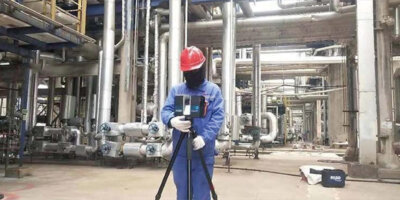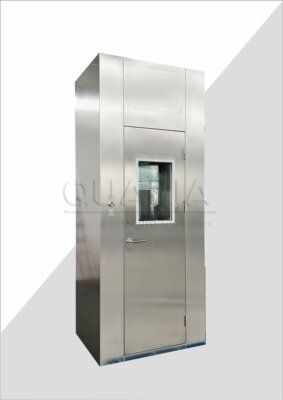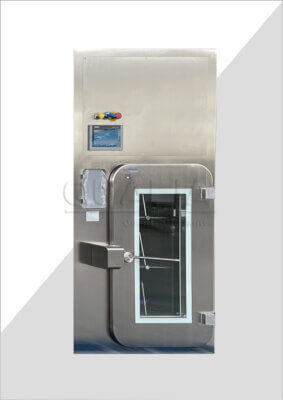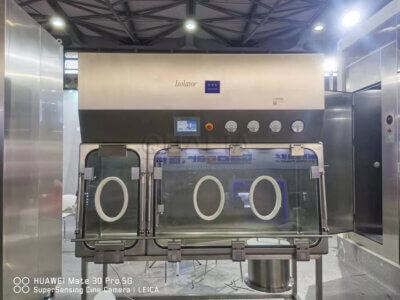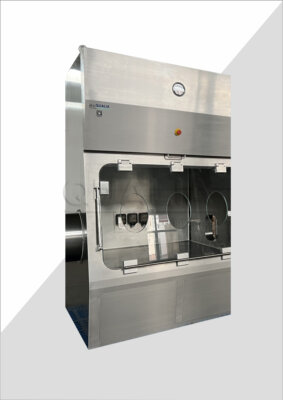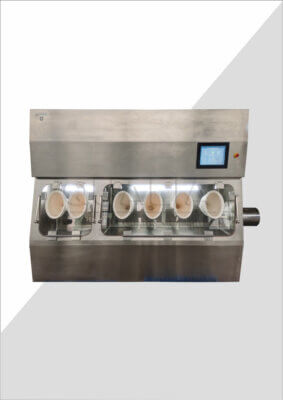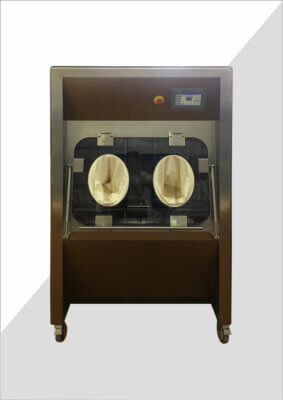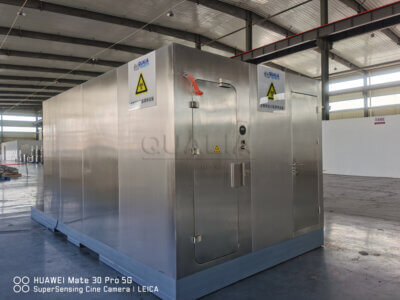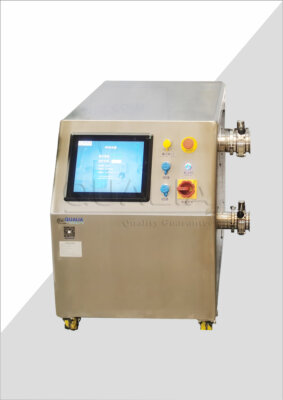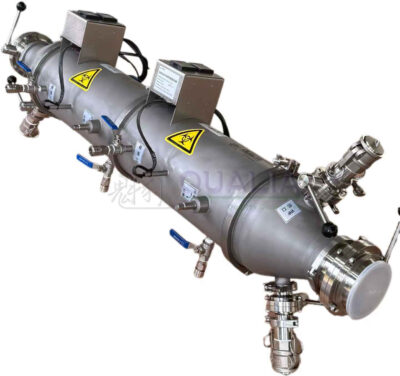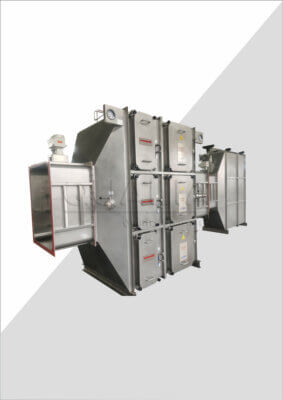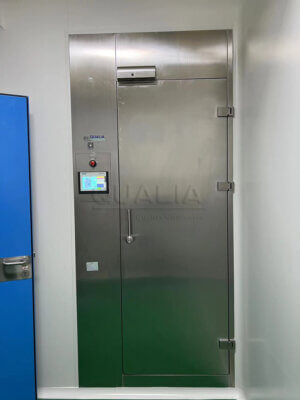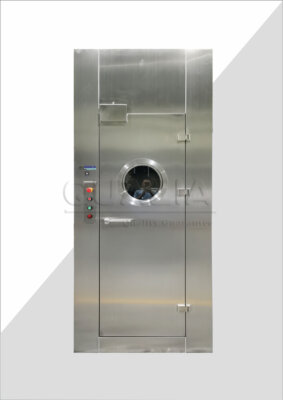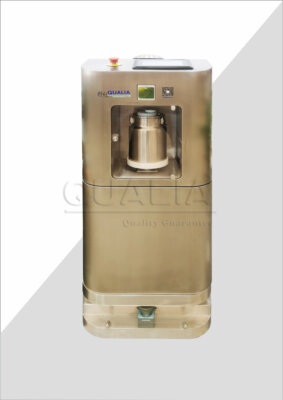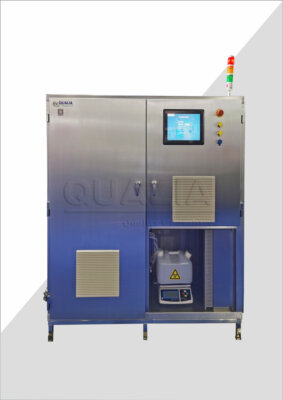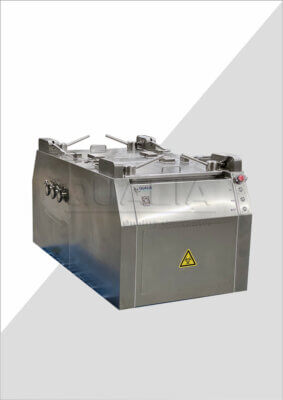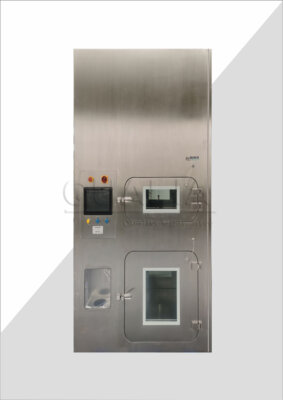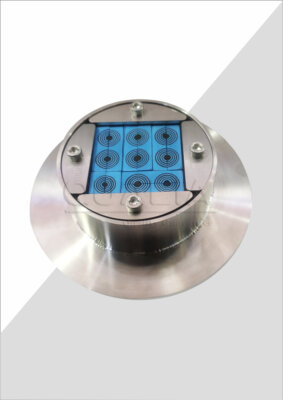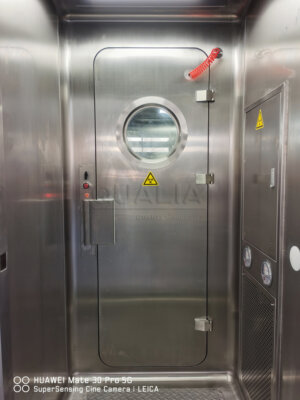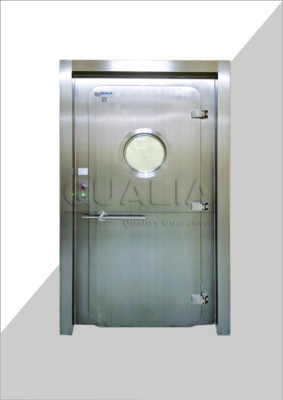In today's rapidly evolving scientific landscape, biosafety is paramount. As laboratories worldwide strive to maintain the highest standards of safety and efficiency, the demand for comprehensive training in biosafety cabinet operation has skyrocketed. Online courses have emerged as a flexible and accessible solution, providing researchers, lab technicians, and safety officers with the knowledge and skills needed to operate these critical pieces of equipment effectively.
The realm of biosafety cabinet online courses offers a diverse array of options, catering to various skill levels and specific needs. From basic operational techniques to advanced certification programs, these courses cover a wide spectrum of topics essential for maintaining a safe and compliant laboratory environment. As we delve into the top offerings in this field, we'll explore how these courses are shaping the future of laboratory safety and contributing to the advancement of scientific research.
As we transition into our exploration of the best online courses for biosafety cabinet training, it's crucial to understand the significance of this specialized education. Proper training not only ensures the safety of laboratory personnel but also maintains the integrity of research samples and experiments. With the increasing complexity of biological research and the ever-present need for containment of potentially hazardous materials, the role of well-trained professionals in biosafety cabinet operation has never been more critical.
Biosafety cabinet online courses have revolutionized the way laboratory professionals acquire and maintain their safety skills, offering flexibility, accessibility, and up-to-date information on the latest biosafety standards and practices.
What makes a top-tier biosafety cabinet online course?
When evaluating the quality of biosafety cabinet online courses, several key factors come into play. The best courses offer a comprehensive curriculum that covers not only the basics of biosafety cabinet operation but also delves into advanced topics such as risk assessment, maintenance procedures, and regulatory compliance. Additionally, high-quality courses often incorporate interactive elements, virtual simulations, and real-world case studies to enhance the learning experience.
A standout feature of top-tier courses is their alignment with industry standards and certifications. Many leading programs are designed to prepare participants for certification exams or offer their own certifications upon completion. This ensures that the knowledge gained is not only theoretical but also practical and recognized within the industry.
The most effective biosafety cabinet online courses combine theoretical knowledge with practical applications, ensuring that participants can immediately apply their learning in real laboratory settings.
| Key Features of Top Biosafety Cabinet Courses |
|---|
| Comprehensive curriculum |
| Interactive learning elements |
| Alignment with industry standards |
| Certification preparation or offerings |
| Regular updates to reflect current practices |
To truly excel, a biosafety cabinet online course must go beyond mere instruction and foster a deep understanding of the principles behind biosafety practices. This approach enables learners to adapt their knowledge to various scenarios and make informed decisions in critical situations.
How do online courses compare to traditional in-person training?
The rise of online education has sparked debates about its efficacy compared to traditional in-person training, especially in hands-on fields like laboratory safety. However, when it comes to biosafety cabinet training, online courses have proven to be remarkably effective, often surpassing their in-person counterparts in several aspects.
One of the primary advantages of online courses is their accessibility. Learners can access course materials from anywhere, at any time, allowing for greater flexibility in scheduling and pacing. This is particularly beneficial for working professionals who need to balance their training with job responsibilities. Moreover, online courses often incorporate cutting-edge technologies such as virtual reality simulations, which can provide a highly immersive and interactive learning experience.
Online biosafety cabinet courses have demonstrated their ability to deliver high-quality education that meets or exceeds the standards of traditional in-person training, with the added benefits of flexibility and technological innovation.
| Comparison Factors | Online Courses | In-Person Training |
|---|---|---|
| Accessibility | High (24/7 access) | Limited (scheduled sessions) |
| Flexibility | Self-paced learning | Fixed schedule |
| Interactive Elements | Virtual simulations, quizzes | Physical equipment handling |
| Cost-effectiveness | Generally lower | Higher (travel, accommodation) |
| Networking Opportunities | Limited (virtual forums) | High (face-to-face interaction) |
While online courses excel in many areas, it's important to note that some aspects of biosafety cabinet training, such as hands-on equipment manipulation, may require supplementary in-person sessions. However, many online programs have developed innovative ways to address this challenge, such as partnering with local facilities for practical components or utilizing advanced virtual reality technologies.
What core topics should a comprehensive biosafety cabinet course cover?
A well-rounded biosafety cabinet online course should encompass a wide range of topics to ensure that participants gain a thorough understanding of both theoretical principles and practical applications. The core curriculum typically includes fundamental concepts such as the types and classifications of biosafety cabinets, their components, and operational principles.
Beyond the basics, advanced courses delve into more specialized areas. These may include proper aseptic techniques, decontamination procedures, and troubleshooting common issues. Risk assessment and management are also crucial components, teaching participants how to evaluate potential hazards and implement appropriate safety measures.
Comprehensive biosafety cabinet courses should provide a holistic education that covers not only the technical aspects of cabinet operation but also the broader context of laboratory safety and regulatory compliance.
| Essential Topics in Biosafety Cabinet Courses |
|---|
| Cabinet types and classifications |
| Operational principles and procedures |
| Aseptic techniques and contamination control |
| Maintenance and certification requirements |
| Risk assessment and management |
| Regulatory standards and compliance |
QUALIA offers an extensive range of resources that complement these core topics, ensuring that learners have access to the most up-to-date information and best practices in biosafety cabinet operation.
A comprehensive course should also address the latest developments in biosafety technology and emerging challenges in the field. This forward-looking approach ensures that participants are prepared for future advancements and can adapt to evolving safety standards.
How can online courses incorporate practical training for biosafety cabinet operation?
One of the biggest challenges in online education for hands-on skills is replicating the practical experience of operating equipment. However, innovative online biosafety cabinet courses have developed creative solutions to bridge this gap. Virtual reality (VR) and augmented reality (AR) technologies are increasingly being utilized to provide immersive, interactive experiences that closely mimic real-world scenarios.
These virtual simulations allow participants to practice proper techniques, troubleshoot common issues, and even experience emergency situations in a safe, controlled environment. Some courses also employ video demonstrations, interactive 3D models, and gamified learning modules to enhance engagement and retention of practical skills.
Advanced online biosafety cabinet courses leverage cutting-edge technologies to create virtual laboratories, providing learners with practical experience that closely resembles real-world scenarios.
| Practical Training Methods in Online Courses |
|---|
| Virtual reality simulations |
| Interactive 3D models |
| Video demonstrations with expert commentary |
| Gamified learning modules |
| Remote access to real-time equipment feeds |
While these virtual methods are highly effective, some courses also incorporate a blended learning approach. This might include partnerships with local laboratories or equipment manufacturers to provide hands-on sessions as a complement to the online curriculum. The Biosafety cabinet online courses offered by industry leaders often feature such hybrid models, ensuring a comprehensive learning experience.
Despite the innovative approaches to practical training, it's important for learners to recognize that some aspects of biosafety cabinet operation may still require in-person practice. However, the foundation laid by online courses significantly enhances the efficiency and effectiveness of any subsequent hands-on training.
What certification options are available through online biosafety cabinet courses?
Certification is a crucial aspect of biosafety cabinet training, providing formal recognition of an individual's competence and knowledge in the field. Many online courses offer certification options that are widely recognized in the industry, adding significant value to the learner's professional credentials.
Some courses are designed specifically to prepare participants for external certification exams, such as those offered by the American Biological Safety Association (ABSA) or the National Sanitation Foundation (NSF). These programs typically include practice exams, study guides, and focused content aligned with the certification requirements.
Online biosafety cabinet courses that offer industry-recognized certifications provide participants with tangible proof of their expertise, enhancing their professional credibility and career prospects.
| Certification Types Available Through Online Courses |
|---|
| Course-specific certifications |
| Preparation for ABSA certification exams |
| NSF/ANSI 49 certification preparation |
| Continuing education credits |
| Manufacturer-specific equipment certifications |
It's important to note that while online certifications are increasingly respected in the industry, some employers or regulatory bodies may require additional in-person assessments or practical demonstrations. However, the knowledge and skills gained through online certification courses provide a solid foundation for these further evaluations.
How do online courses address the latest biosafety regulations and standards?
Staying current with the latest biosafety regulations and standards is crucial for laboratory professionals. Online courses have a distinct advantage in this area, as they can be quickly updated to reflect changes in guidelines or best practices. Leading online programs maintain close relationships with regulatory bodies and industry experts to ensure their content remains cutting-edge.
Many courses incorporate modules specifically dedicated to regulatory compliance, covering key standards such as those set by the Occupational Safety and Health Administration (OSHA), the Centers for Disease Control and Prevention (CDC), and international bodies like the World Health Organization (WHO). These modules not only explain the regulations but also provide practical guidance on implementing them in laboratory settings.
The ability of online courses to rapidly integrate new regulations and standards ensures that participants are always learning the most current and relevant information in biosafety cabinet operation and management.
| Regulatory Topics Covered in Online Courses |
|---|
| OSHA laboratory safety standards |
| CDC biosafety levels and guidelines |
| WHO laboratory biosafety manual |
| NSF/ANSI 49 standards for BSCs |
| Good Laboratory Practice (GLP) regulations |
Regular updates and supplementary materials keep learners informed of any changes in the regulatory landscape, even after course completion. This ongoing access to current information is a significant advantage of online learning platforms in the rapidly evolving field of biosafety.
What are the career benefits of completing an online biosafety cabinet course?
Completing an online biosafety cabinet course can significantly enhance an individual's career prospects in the laboratory and research sectors. These courses provide specialized knowledge that is highly valued by employers and can lead to increased responsibilities, leadership roles, and potentially higher salaries.
For those already working in laboratory settings, advanced training in biosafety cabinet operation can open doors to roles such as biosafety officer or laboratory safety coordinator. For individuals entering the field, these courses provide a competitive edge in job applications and demonstrate a commitment to safety and professional development.
Online biosafety cabinet courses not only enhance technical skills but also develop critical thinking and problem-solving abilities, making participants valuable assets in any laboratory environment.
| Career Benefits of Biosafety Cabinet Training |
|---|
| Enhanced job prospects |
| Potential for higher salaries |
| Qualification for specialized roles |
| Improved workplace safety leadership |
| Networking opportunities within the industry |
Moreover, the knowledge gained from these courses is transferable across various scientific disciplines, making participants versatile professionals capable of adapting to different laboratory environments and research fields.
In conclusion, online courses for biosafety cabinet training have revolutionized the way laboratory professionals acquire and maintain their safety skills. These courses offer a flexible, comprehensive, and up-to-date approach to learning that meets the evolving needs of the scientific community. From basic operational techniques to advanced certification programs, online training provides a solid foundation for ensuring laboratory safety and compliance with industry standards.
The integration of cutting-edge technologies, such as virtual simulations and interactive modules, has significantly enhanced the practical aspects of online learning. While hands-on experience remains valuable, these innovative approaches have bridged the gap between theoretical knowledge and practical application, making online courses a viable and often preferred option for many professionals.
As the field of biosafety continues to evolve, online courses will play an increasingly important role in disseminating knowledge and best practices. They offer a scalable solution to the growing demand for trained professionals in laboratory safety, contributing to the advancement of scientific research while prioritizing the well-being of laboratory personnel and the integrity of experimental processes.
For those looking to enhance their skills or enter the field of laboratory safety, investing in a high-quality online biosafety cabinet course is a strategic decision that can lead to numerous professional benefits and contribute to a safer, more efficient research environment.
External Resources
- Biological Safety Cabinets Training – This web-based training program, offered by the University of Illinois at Chicago, instructs researchers on how to protect themselves and their products from contamination using Biological Safety Cabinets (BSCs).
- Safe Use of Biological Safety Cabinets – McGill University – McGill University's online course and exam focus on the safe use of biological safety cabinets, covering topics such as HEPA filtration and safe work practices.
- ABSA Advanced Biosafety Training Series – The Advanced Biosafety Training Series by ABSA is designed for intermediate to advanced learners, covering topics such as risk assessment and facility design.
- Global Biosafety Cabinet Certification Program – The Eagleson Institute's program involves two phases of training, focusing on the construction, function, and effective use of BSCs.
- Biosafety Cabinet Testing (EN 12469 and NSF 49) – ATI's two-day course covers the theory and practice of testing biosafety cabinets, complying with EN 12469 and NSF 49 standards.
Related Contents:
- Biosafety Cabinet Certification: Why It’s Crucial
- Biosafety Cabinet Operation: Essential Training Guide
- Biosafety Cabinet Certification: Training Overview
- Biosafety Cabinet Installation: What You Need to Know
- Biosafety Cabinet Sizes: Finding the Perfect Fit
- BSL-3/4 Biosafety Training: Comprehensive Guide
- Choosing the Right Biosafety Cabinet: 5 Key Factors
- Biosafety Cabinet Validation: Ensuring Compliance
- ISO 14644 and Biosafety Cabinets: Clean Air Standards


